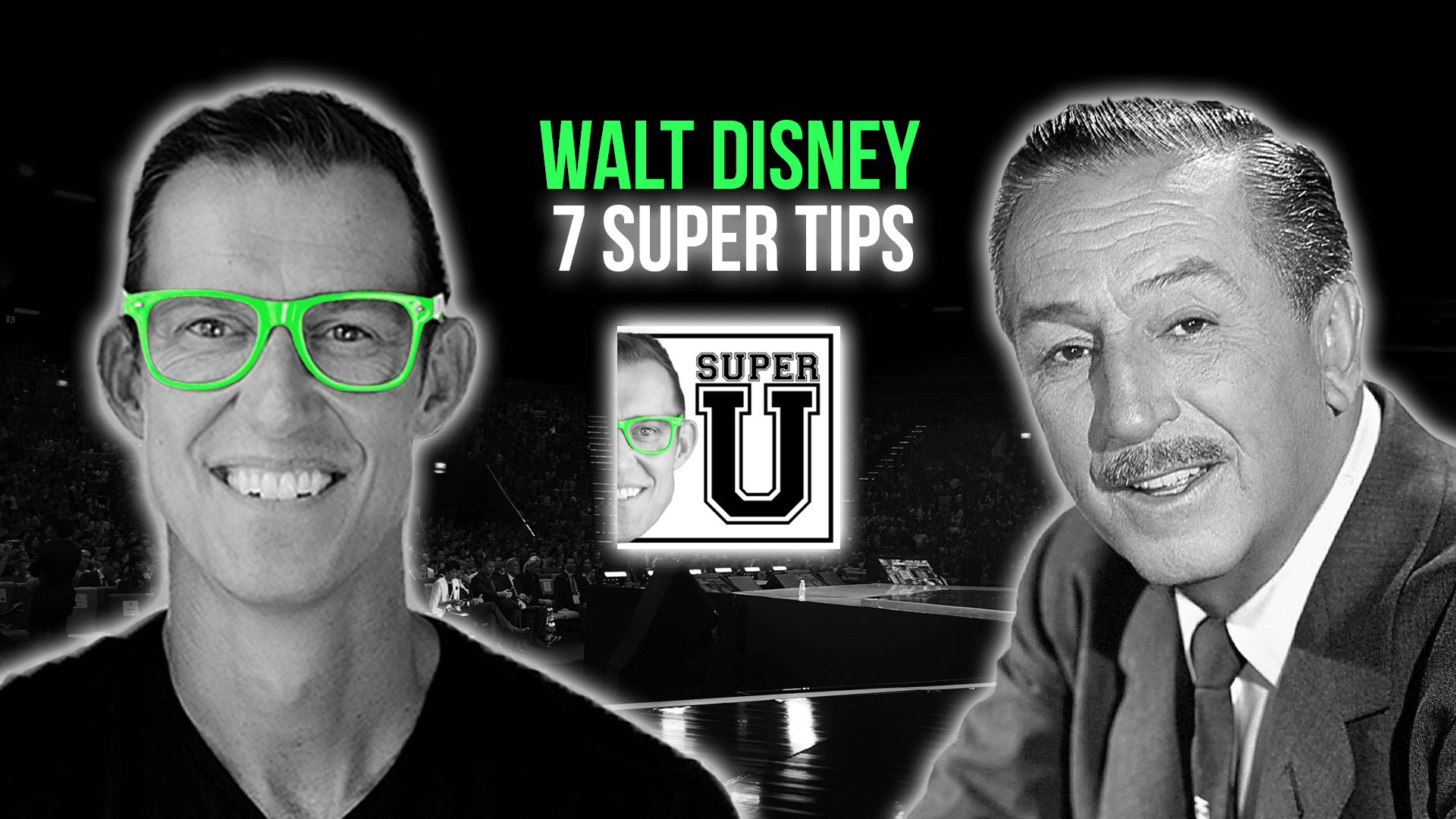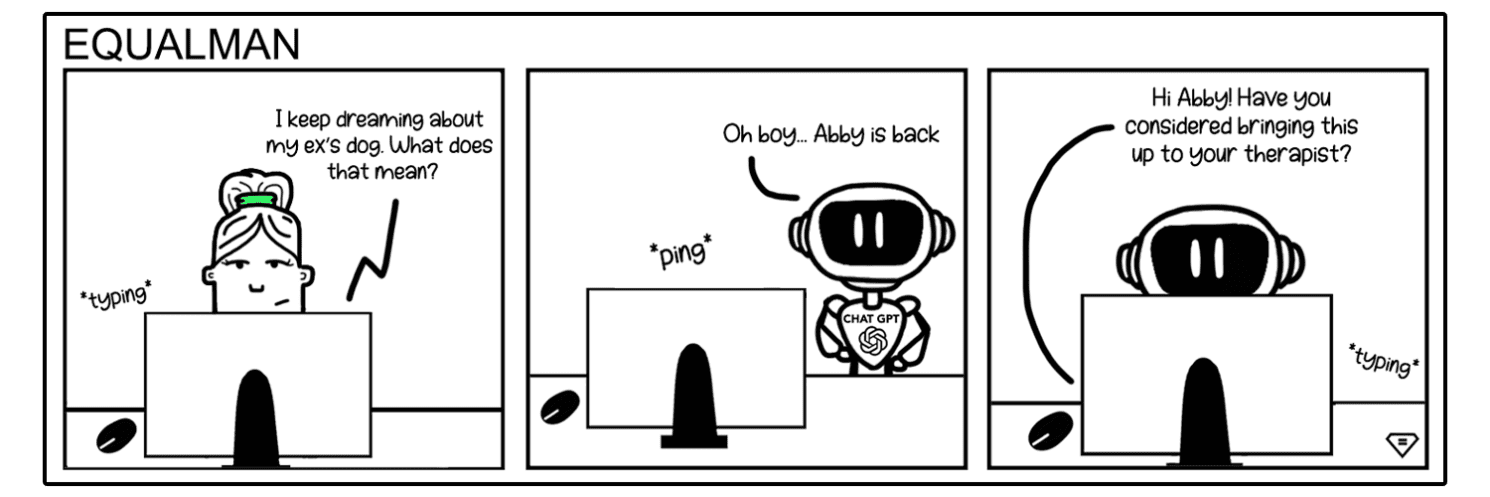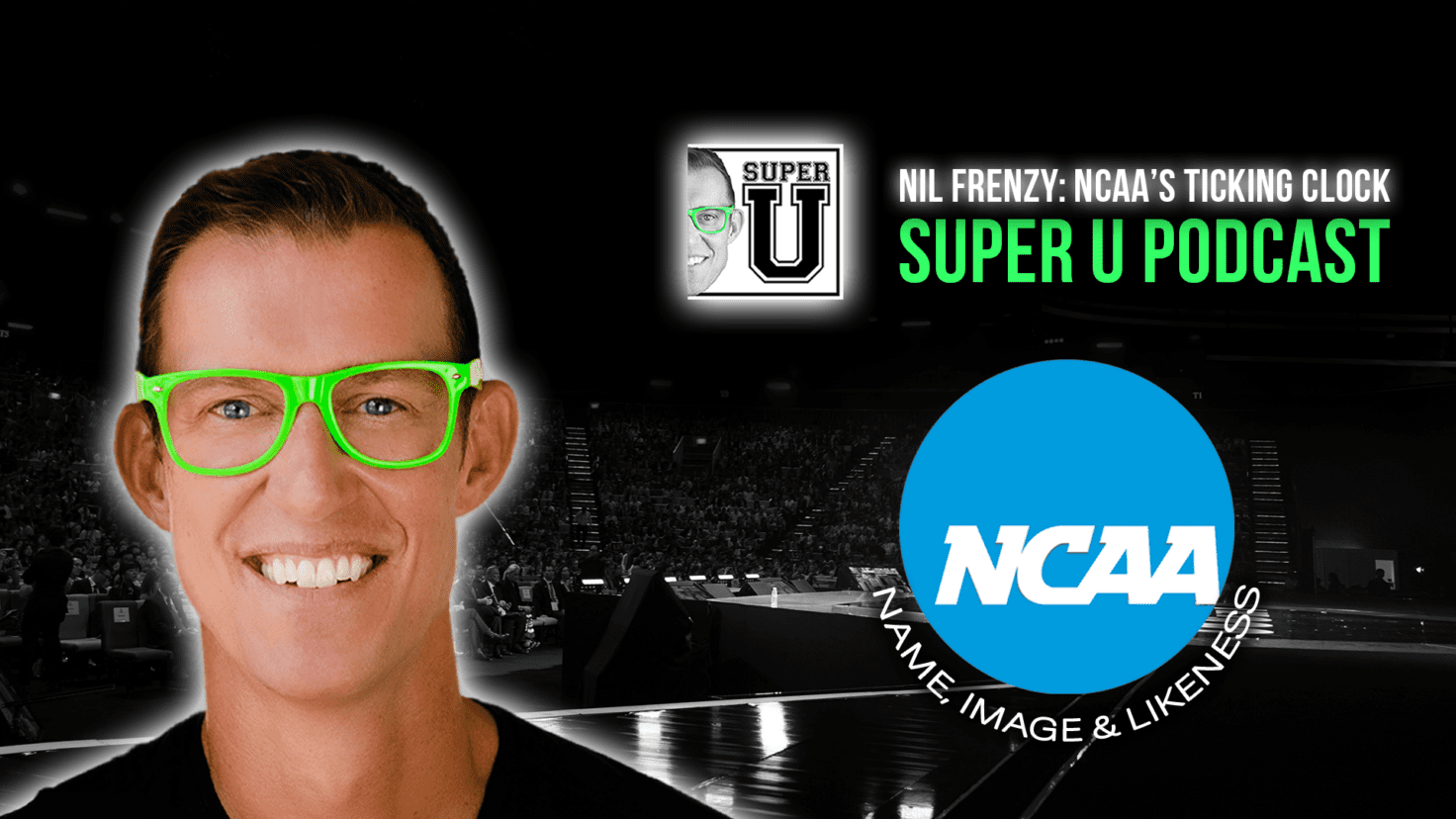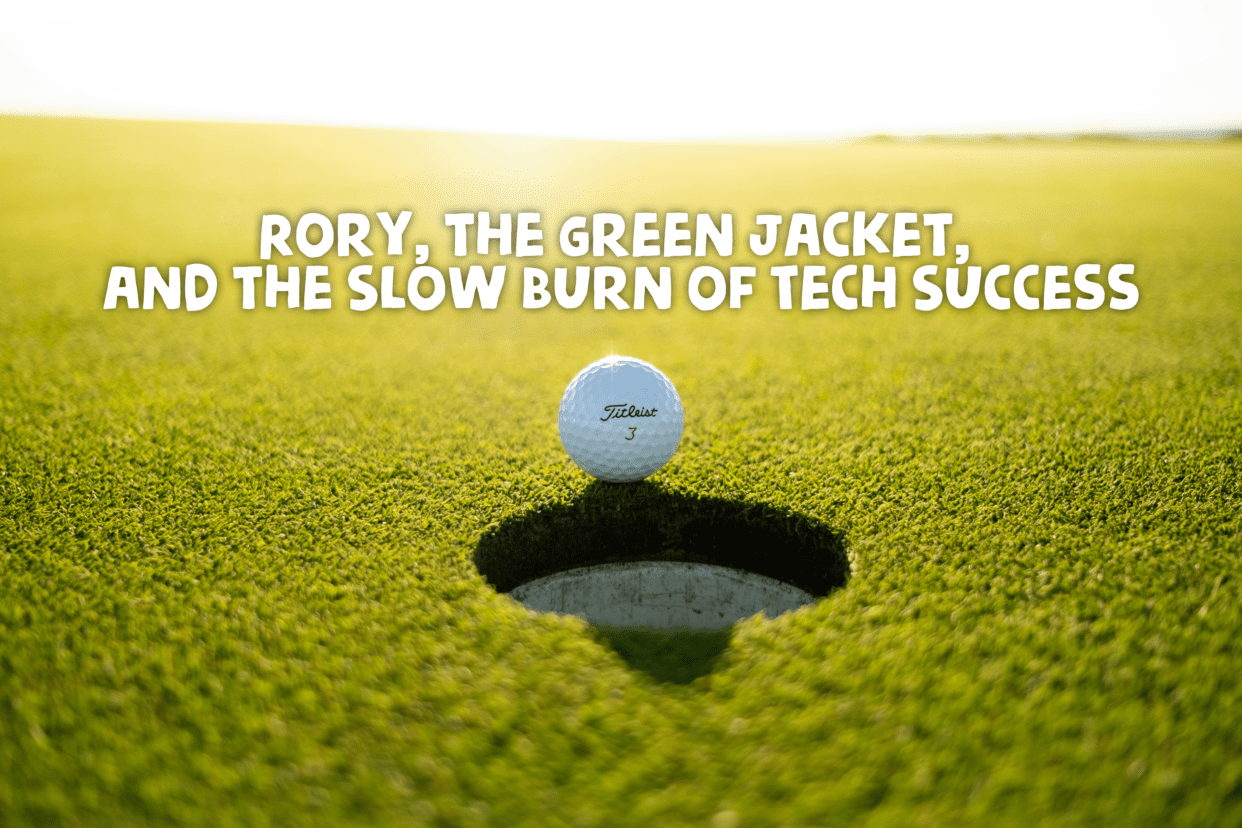Super U Podcast | 7 Super Tips with Walt Disney
Walt Disney was an American entrepreneur, animator, writer, voice actor, and film producer. A pioneer of the American animation industry, he introduced several developments in the production of cartoons. As a film producer, he holds the record for most Academy Awards earned by an individual, having won 22 Oscars from 59 nominations. He was presented with two Golden Globe Special Achievement Awards and an Emmy Award, among other honors. Disney’s words and insights still live on today and have aided in helping others follow their dreams.
5x #1 Bestselling Author and Motivational Speaker Erik Qualman has performed in over 55 countries and reached over 50 million people this past decade. He was voted the 2nd Most Likable Author in the World behind Harry Potter’s J.K. Rowling.
Need a sneak peek? Below are the main takeaways from the episode.
Super U Podcast | 7 Super Tips with Walt Disney:
[1:42] Tip #1
“thing I did when I got a little money to experiment, I put all my artists back in school. We as art schools that existed then didn’t quite have enough for what we needed. So we set up our own art school where you were inventing a new art anyway. Well, yes, but we were just going a little bit beyond what they were getting in the art school where they work with the static figure. We were dealing in motion movement, and the flow of movement, deplored things, you know, action-reaction, all of that. So we had to set up our own school. And out of that school, the company, the artists that now make up my staff here, and more than that, the artists that make up all the most all of the cartoon outfits in Hollywood, directly or indirectly out of high school.”
[3:30] Tip #2
“The sketches and plans you will see today are simply a starting point. Our first overall thinking about Disney World. Everything in this room may change time and time again, as we move ahead. But the basic philosophy of what we’re planning for Disney World is going to remain very much as it is right now. We know what our goals are. We know what we hope to accomplish. And believe me, it’s the most exciting and challenging assignment we’ve ever tackled at Walt Disney Productions.”
[5:35] Tip #3
“Well, it came about when my daughters were very young and I Saturday was always daddy’s day with two daughters. So we’d start out and try to go someplace, you know, different things. And I take them to the Mary ground and I took them to different places. And as I’d sit there around the road, the merry go round, grounded all these things, sit on a bench and eating peanuts. I felt that they should be something build some kind of a newsman enterprise built where the parents and the children could have fun together. So that’s how Disneyland started. Well, it took many years, it was a period of maybe 15 years developing, started with many ideas, throw them away, start all over again. And eventually, it evolved into what you see today is Disney. But it all started from a daddy with two daughters, wondering where he could take them where he could have a little fun with him too.”
[8:11] Tip #4
“In our feature production of Bambi, the characters were developed by drawing from life. Our artists made 1000s of action sketches, catching every pose and characteristic attitude in the production of Lady and the tramp. This technique of humanized animal characters reaches a point of near perfection. We first tried this approach to humanize animal animation in one of our early silly symphonies. For this project, we brought some kittens into the studio, and let them play and roam about as they pleased, while the artists made sketches, and collected ideas for the kitten story. The result of this experiment was the Academy Award winner of the year 1935 Three orphan”
[10:03] Tip #5
“Carpet will take its cue from the new ideas and new technologies that are now emerging from the creative centers of American industry. It will be a community of tomorrow that will never be completed but will always be introducing and testing, and demonstrating new materials and new systems. And Epcot will always be a showcase to the world. For the ingenuity and imagination of American free enterprise. I don’t believe there’s a challenge anywhere in the world that’s more important to people everywhere, and finding solutions to the problems of our cities. But where do we begin? How do we start answering this great challenge? While we’re convinced we must start with the public need. And the need is not just for curing the old hills of old cities, we think the need is for starting from scratch on virgin land and building a special kind of new community. So that’s what Epcot is an experimental prototype community, that will always be in a state of becoming, it will never cease to be a living blueprint of the future, where people actually live a life that can’t find anywhere else in the world.”
[13:42] Tip #6
“In Tomorrowland, a monorail which started operations only two years ago has already outgrown its original circuit. Its new extension leaves the Tomorrowland area of the park to parallel a modern freeway. along this stretch the monorails passengers can experience a practical application of transportation of the future, appropriately called a highway in the sky. The new Disneyland Monorail system covers two and a half-mile. Not only is the monorail system entertained with attraction, but its new extension links the park with the Disneyland Hotel. It is not impractical to believe that such a monorail system could well be the answer to the growing traffic congestion in our cities. I guess you could call it daydreaming. That’s the way Disneyland was conceived. A dream that grew into a reality.”
[16:08] Tip #7
“Well, of course, I mean, happiness is a state of mind, I mean that you. If you’re ever you’re doing you can be happy to be unhappy if this according to the way you look at things. So I think happiness is contentment, but it doesn’t mean you have to have well, all individuals are different. So this wouldn’t be satisfied with just carrying out a routine job and being happy. Yet I envy those people. I had a brother who, who I really envy because he was a mailman. But he mows the front, he lives off a trailer. And he used to go out and go fishing. And he didn’t worry about payrolls and that story he said and fix your groceries or anything. And he was the happy one. And I always said he’s a smart business.”
Click here to subscribe and listen to the full episode.
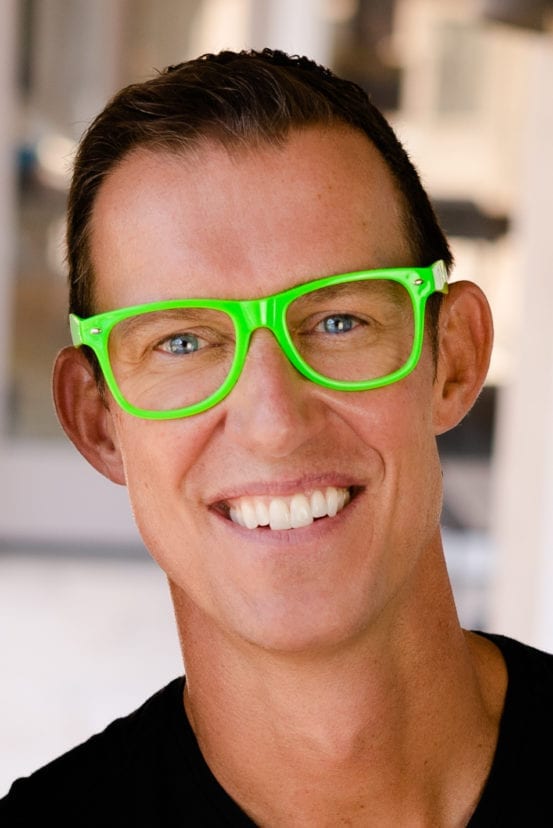
To ensure you don’t miss future episodes, subscribe to our podcast by clicking here >> Super U Podcast. We hope these tips help unlock and unleash your inner superpower!
The Super U Podcast is hosted by #1 bestselling author and Motivational Speaker Erik Qualman.

